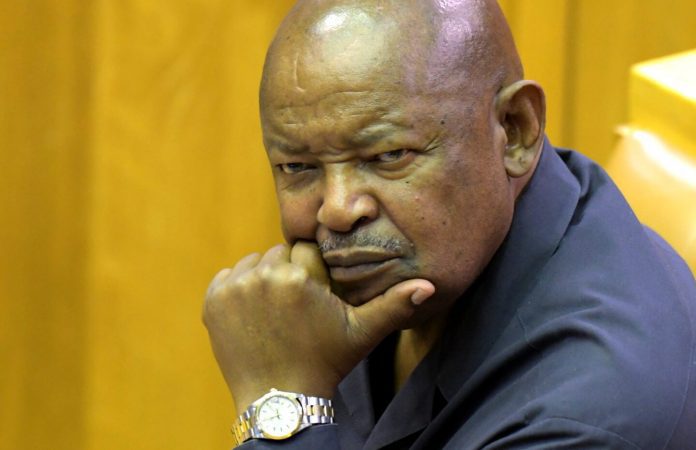COPE was born in 2008 out of a rebellion against the ANC’s internal strife and betrayal of democratic principles.
The party offered a promise of a new beginning, free from the corruption and factionalism that had started to taint South African politics.
In its first election in 2009, COPE captured the imagination of over 1.3-million South Africans, securing 30 parliamentary seats and positioning itself as a credible alternative to the ANC.
However, as we approach 2025, a significant question arises: has COPE reached its peak?
The rise and fall
COPE’s early promise was undeniable. It stood for non-racialism, non-sexism, constitutional respect, and clean governance — values that resonated with a public disillusioned by the ANC’s growing arrogance.
But the party’s internal divisions quickly became its Achilles’ heel. Leadership battles, factionalism, and a lack of clear direction eroded its credibility.
By the 2014 elections, COPE’s support had dwindled to just three parliamentary seats, and its relevance in South African politics seemed to be fading.
The party’s inability to maintain unity and focus on its founding principles led to a steady decline.
As other opposition parties such as the DA and EFF gained strength, COPE deteriorated, struggling to establish its presence in the crowded political landscape.
Once considered a beacon of hope, its leadership became embroiled in infighting, further alienating its base.
The latest developments, as outlined in COPE’s media statement, suggest that the party is attempting to stage a comeback.
The appointment of Teboho Loate as interim leader, in the absence of ailing Mosiuoa “Terror” Lekota, marks a new phase of leadership renewal, with the party aiming to rebuild public trust and prepare for the 2026 elections.
The statement acknowledges the deep crisis facing South Africa — corruption, joblessness, and poor infrastructure — and positions COPE as a “real national alternative” that puts people first. But is this enough?
The party’s priorities — the direct election of leaders; zero tolerance for corruption; reindustrialisation; fixing public services; and promoting national unity — are noble and necessary.
However, these are promises that South Africans have heard before, not just from COPE but from every political party vying for their votes.
The real challenge lies in translating these promises into action, something COPE has struggled with in the past.
Can COPE be rescued?
From a realpolitik perspective, COPE’s survival hinges on several critical factors.
- Leadership stability: The party must resolve its leadership issues. The appointment of Loate as interim leader is a step in the right direction, but the December 2025 elective congress will be crucial. COPE needs a leader who can unite the party, inspire confidence, and articulate a clear vision for the future.
- Rebuilding trust: COPE’s biggest challenge is regaining the trust of South Africans who feel betrayed by politics. This requires visible action, not just words. The party must be active in communities, addressing real issues like unemployment, service delivery, and corruption.
- Strategic alliances: COPE cannot go it alone. Early talks with like-minded parties, as mentioned in the statement, are essential. Forming coalitions could help the party gain influence in local government and amplify its message.
- Effective communication: COPE needs to be more visible and vocal, using all media platforms to engage with the public. The party must present itself as a credible alternative, not just another opposition party making empty promises.
- Policy innovation: While COPE’s priorities are important, they are not unique. The party must offer innovative solutions that set it apart from the ANC, DA, and EFF. For example, its focus on the green economy and skills development could be expanded into a comprehensive plan for sustainable growth.
Has COPE reached the end?
The answer to this question depends on what COPE does next. The party is at a crossroads. It can either rise to the occasion, rebuild itself, and play a meaningful role in South Africa’s future, or it can continue its downward spiral and fade into obscurity.
The 2026 local government elections will be a defining moment.
If COPE can demonstrate real action, unity, and leadership, it has a chance to regain its footing. However, if it fails to deliver, the party might have reached its limit.
Its journey has been one of promise and disappointment. Its latest efforts to renew leadership and prepare for the 2026 elections offer a glimmer of hope, but the road ahead is fraught with challenges.
To rescue itself, COPE must embrace bold action, rebuild trust, and offer innovative solutions that resonate with the public.
The party’s relevance in South African politics depends on its ability to adapt and deliver. It remains to be seen whether COPE has reached the end of the road or is on the brink of a comeback.
One thing is clear: South Africans deserve more than broken promises — they deserve honest leaders and real change.
COPE must decide if it can be that change or if it will be a footnote in the country’s political history.



